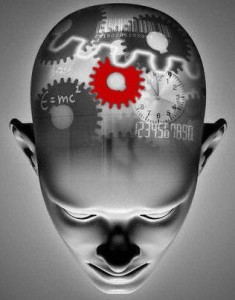 Experimental psychology examines relationships between human behavior and the mind. Experimental psychology is centered on fact-based, scientific research and experimentation. Therefore, experimental psychologists manipulate research variables in order to discover relationships between cognition and behavior.
Experimental psychology examines relationships between human behavior and the mind. Experimental psychology is centered on fact-based, scientific research and experimentation. Therefore, experimental psychologists manipulate research variables in order to discover relationships between cognition and behavior.
Experimental Psychology 101
Experimental psychology explores basic concepts, such as memory and motivation, in many areas, such as child, social and educational psychology. Almost all Experimental psychology work is conducted in controlled environments, such as university research labs. While every branch of psychology strives to understand human behavior and thought, experimental psychology solely focuses on controlled experiments with designated variables, test subjects and statistical results.
A Quick History of Experimental Psychology
Some credit Charles Darwin’s “On the Origin of Species” with starting the field of experimental psychology. To be sure, Darwin’s revolutionary theory sparked interested in the relationship between biology and psychology. In the early 1900’s, pioneering psychologists started using natural science to analyze and explain the human mind. For example, E. B. Titchener coined the phrase associationism, which referred to the idea that complex cognitive processes could be explained through simple mental activities. This theory was central to reductionist-driven structuralists. However, this inaccurate understanding of the human mind as a machine was replaced by functionalist theories. For example, William James, the father of American psychology, was strongly influenced by evolutionary biology and promoted the idea that the mind is naturally adaptive, sensible and intelligent. In the end, behaviorism and other modern psychology branches contributed to the formation of experimental psychology.
A Sample Research Topic Experimental Psychology
Experimental psychology explores innovative concepts that are new to the world of academic psychology. For example, social cognition is a new concept that attempts to explain the cognitive processes that occur during social interactions. Therefore, experimental psychologists are now using brain imaging technology to measure the cognitive and psychological processes that occur during social stimuli. For example, this can be measured through analyzing neurobiological reactions to pictures of faces or analyzing attitudes towards social values.
A Career in Experimental Psychology
According to the American Psychological Association (APA), experimental psychologists seek to understand which factors influence human behavior, experiences and thought processes. Therefore, they use scientific tools and techniques to perform research, collect data and publish results. In fact, many experimental psychologists spend years conducting and publishing research about a single research question or theory. The APA notes that a bachelor’s degree in psychology with training in human factors and industrial and organizational (IO) psychology are helpful. Math and statistical skills are extremely beneficial.
Experimental Psychology Curriculum Overview
Most experimental psychology degrees are graduate programs for students with a bachelor’s in psychology. However, these master’s programs generally offer social, clinical, cognitive, neuroscience and developmental specializations. Students will work with a mentor and faculty to conduct research for their master’s thesis. This could be anything from television violence to parenting styles to religious behaviors. Courses will cover psychometric, behavior modification, experiment measurements and perception and sensation. They may also cover personality, abnormal, comparative and cross-culture psychology.
Related Resource: Art Therapy Careers
To conclude, experimental psychology is a unique branch of psychology that explores every facet of the human experience. In fact, they also regularly study animals in their complex experiments. Experimental psychology is a perfect career choice because students will be able to conduct research in every major field of psychology.




